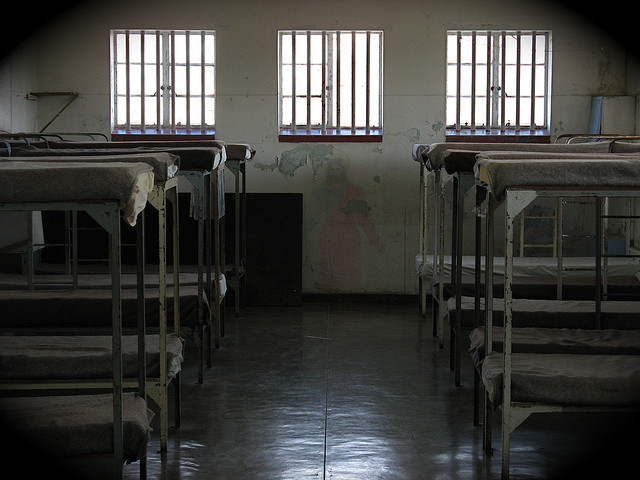For years, the Saskatchewan General and Governmental Employees Union (SGEU) has been arguing that the provinces prisons are overcrowded. Now a study into the human effects of prison overcrowding is backing up that assertion.
The study, Warehousing Prisoners in Saskatchewan, was authored by Jason Demers for the Canadian Centre for Policy Alternatives. It found that Saskatchewan’s prisons currently house twice as many prisoners as they were designed to hold.
As a result, classrooms, gymnasiums, workshops and visiting rooms are being converted into dormitories to accommodate the ballooning number of inmates. The province has increasingly adopted the infamous “double-bunking” practice, in which two inmates are housed in a single-person cell.
The study found that this form of inmate “warehousing” increases both public health risks within prisons and the risk of recidivism.
The report validates what the SGEU, which represents 3,337 members working in Saskatchewan, has been arguing for quite some time, said SGEU Public Service Sector Vice President Barry Nowselski.
“We have concern for the staff that we represent and we have concerns for the inmates,” he said, citing increases in prison violence and lack of programming as the negative consequences of overcrowding.
Though double-bunking rates have grown across the country, overcrowding is worst the Prairie Region, where double-bunking has increased by 27 per cent in recent years.
According to the 2012-2013 annual report by Correctional Investigator Howard Sapers, the number of assaults, including assaults on other inmates, visitors, and staff has increased by 60 per cent in the Prairie Region. Between 2010 and 2013 five inmate murders took place in the Prairie Region — more than half of all inmate homicides in federal penitentiaries.
Overcrowding “compounds the stress” of prison life for both inmates and prison workers, said Nowoselski.
“Obviously the potential for violence is enhanced when you have an overcrowding situation and when you are double-bunking,” he added.
Many SGEU correction workers have expressed concerns about over-crowding and lack of training for dealing with escalating gang violence, and inmate’s mental health-related issues.
The SGEU has been in conversation with the Ministry about how to implement much-needed solutions, though the Ministry of Justice remains firm that it will not be building any new facilities, Nowoselski said .
Ella Bedard is rabble.ca‘s labour intern. She has written about labour issues for Dominion.ca and the Halifax Media Co-op and is the co-producer of the radio documentary The Amelie: Canadian Refugee Policy and the Story of the 1987 Boat People. She now lives in Toronto where she enjoys chasing the labour beat, biking and birding.



